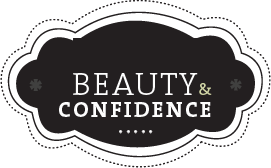Top 4 Seasonal Allergy Mistakes

Allergies (also called “allergic rhinitis” or “hay fever”) are nothing to sneeze at -- just ask the approximately 50 million people in the U.S. who suffer from them. If you have seasonal allergies, watch out for common mistakes that could aggravate them, says Dr. James L. Sublett, section chief of the pediatric allergy department at the University of Louisville School of Medicine in Kentucky. Steer clear of these four most common slipups, according to the American College of Allergy, Asthma and Immunology.
1. Common Mistake: You treat symptoms without knowing what you’re allergic to.
Many allergy sufferers are so desperate for relief that they start taking their allergy medications before they have a chance to identify their triggers. This may be why patients report that over-the-counter medications are ineffective more than half the time, says Sublett.
Simple Solution: Get tested.
Before you assume that your allergy medicine isn’t working, make an appointment with a board-certified allergist. (Find one near you at www.acaai.org/LocateAllergist.) “The allergist can perform skin testing, which is the most accurate way to identify allergy triggers,” says Sublett. Then he or she can help you find the best treatment.
2. Common Mistake: You don’t steer clear of your allergy triggers.
Medications aren’t the only way to deal with allergy symptoms. It may not always be easy, but avoiding the culprit behind your sneezing and sniffling is just as important as taking meds.
Simple Solution: Play hard to get.
Once you know what your trigger is, minimize your exposure to it.
If you’re allergic to pollen:
· Keep your windows shut whenever possible.
· Shower and change your clothes when you come inside.
· Stay indoors when pollen counts are highest (in the middle of the day).
If you’re allergic to dust mites:
· If possible, remove wall-to-wall carpets from the bedroom.
· Use a vacuum with a High-Efficiency Particulate Air (HEPA) filter regularly.
· Enclose mattresses and pillows in mite-proof covers.
· Wash bedding regularly in hot water.
If you’re allergic to mold:
· Minimize moisture buildup by using vent fans when you shower and cook.
· If possible, vent appliances that produce moisture (like clothes dryers and stoves) to outside of your home rather than in.
3. Common Mistake: You wait too long to take allergy medicines.
Don’t wait until you start sneezing and sniffling to take medication. “The drugs work best at blocking the occurrence of symptoms, not treating symptoms once you have them,” says Sublett.
Simple Solution: Plan ahead.
If you know you have seasonal allergies, start taking medications that usually work for you as soon as the season starts. Watch the weather: As the temperature warms up, pollen is sure to follow.
4. Common Mistake: You eat produce and other foods that might aggravate sniffles and sneezes.
One out of 20 people who are allergic to pollen has oral allergy syndrome, which means his immune system mistakes the compounds in certain foods for pollen proteins, says Sublett. Some foods -- such as pears, cherries, peaches, apples, melons and nuts -- cause breakouts or itching in the throat or around the mouth.
Simple Solution: Talk to your doctor.
Check with an allergist if you’ve ever experienced these symptoms after eating certain foods. If you have oral allergy syndrome, you should avoid fresh fruit and nuts during allergy season, although cooking or peeling fruit can help some people avoid a reaction. Your physician will know best.
Like this article? Get more by following us @FaceEveryDay or friending us on Facebook at Beauty & Confidence.
